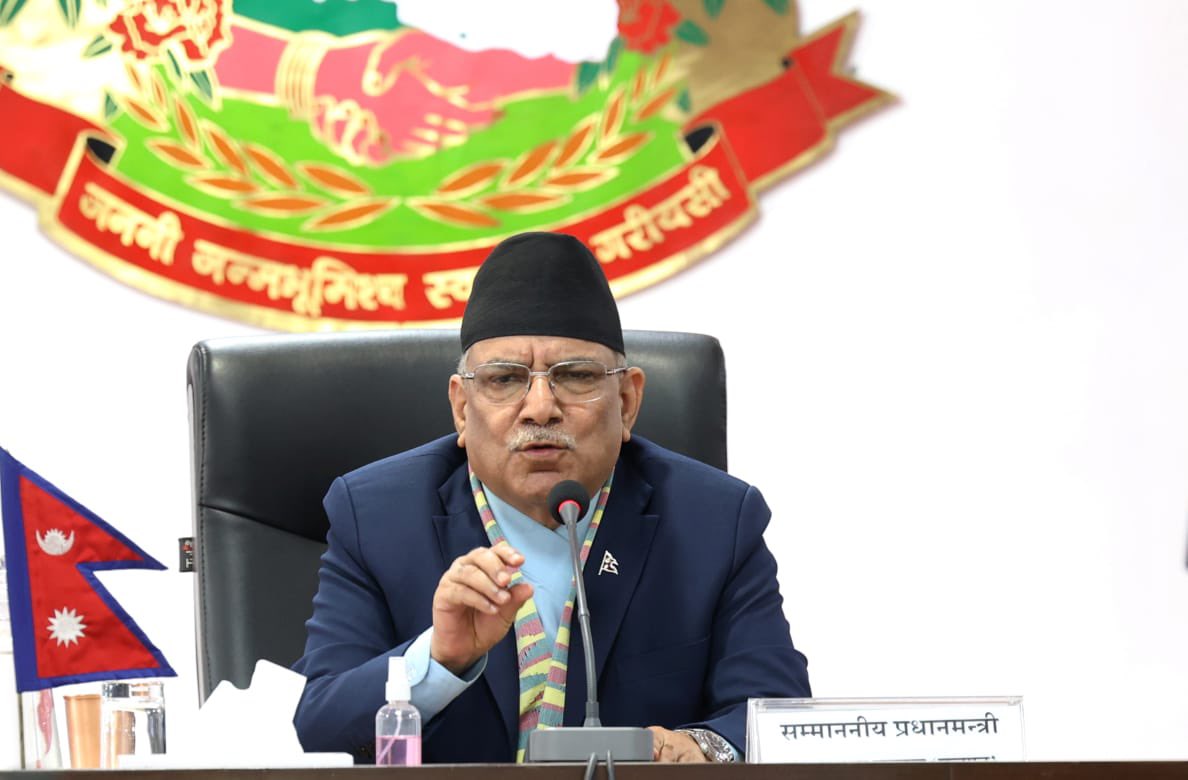
Nepal's Prime Minister Pushp Kamal Dahal 'Prachanda'
New Delhi/Kathmandu/Islamabad/Malé: The installation of new governments in Pakistan, Nepal besides Maldives makes China count as more allies than ever in India’s neighbourhood. Hence, the Chinese influence in India’s neighbourhood appears quite distinct now.

While the swearing-in of Shehbaz Sharif as Pakistan’s Prime Minister on March 4, 2024, is not expected to reduce Pakistan’s hostility towards India, China has “highly” appreciated his “positive statements” on China-Pakistan relations and the China-Pakistan Economic Corridor (CPEC). “We stand ready to work with Pakistan to carry forward our traditional friendship, advance exchanges and cooperation across the board, upgrade the CPEC, deepen China-Pakistan all-weather strategic cooperative partnership, build an even closer China-Pakistan community with a shared future in the new era, and bring more benefits to the two peoples,” China stated today.
The latest developments in Nepal cannot be termed comfortable for India. On March 4, 2024, Nepal’s Prime Minister Pushpa Kamal Dahal “Prachanda” ended the partnership with the largest party, the Nepali Congress party, and joined forces once again with the second-largest party, the Communist Party of Nepal (Unified Marxist-Leninist), to form a coalition government.
Thus, the two largest communist parties in Nepal, backed by two other parties, joined hands to run the government. In the process ‘Prachanda’ sacked ministers from the Nepali Congress and other fringe coalition partners. He nominated one minister each from his party Maoist Centre, CPN-UML and Rastriya Swatantra Party.
Reacting to the development, China today hoped that the new coalition “will work together in solidarity”. Taking note of the formation of a new coalition government in Nepal and the reshuffling of the cabinet there, Chinese foreign ministry spokesperson Mao Ning remarked today: “As a friendly neighbour and cooperation partner, China highly values its relations with Nepal. We would like to work with the new government to uphold the Five Principles of Peaceful Coexistence, deepen our traditional friendship, strengthen practical cooperation, advance the China-Nepal strategic partnership of cooperation featuring ever-lasting friendship for development and prosperity, and deliver more benefits to the people of the two countries.”
It may be recalled that while Prachanda had a pro-China image, the Nepali Congress Party had historically held a pro-India stance.
Moreover, after the new President Dr Mohamed Muizzu snapped defence ties with India and turned to China soon after assuming charge on November 17, 2023, the latest reports on Maldives’ social media state that China will provide military assistance to the Maldives. Commenting on this, Chinese foreign ministry spokesperson Mao Ning today said in Beijing that China was broadly committed to working with the Maldives to build a comprehensive strategic cooperative partnership. “Normal cooperation between China and the Maldives does not target any third party [read India] and will not be disrupted by any third party,” she said. China had made a similar comment in January also. However, India then India has maintained that it was for the Maldivian President to decide where he goes and how he goes about their international relations.
India does have a diplomatic as well as strategic task in hand, given the latest developments in its neighbourhood. This will also be a test of Prime Minister Narendra Modi’s ‘Neighbourhood First Policy’ which guides India’s approach towards the management of relations with countries in its immediate neighbourhood, that is, Afghanistan, Bangladesh, Bhutan, Maldives, Myanmar, Nepal, Pakistan and Sri Lanka.
– global bihari bureau




